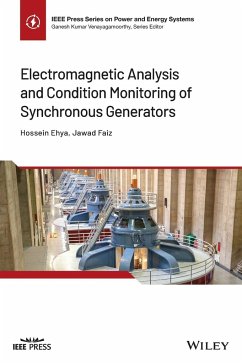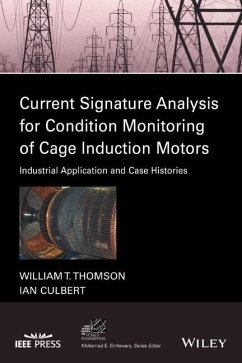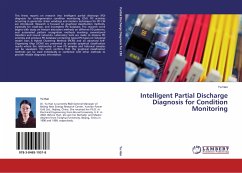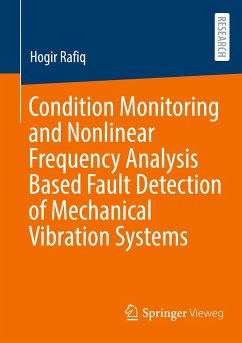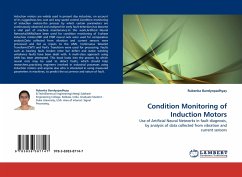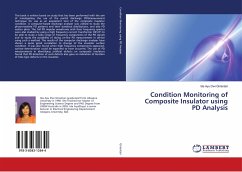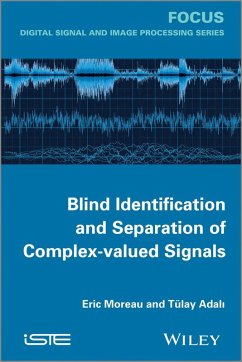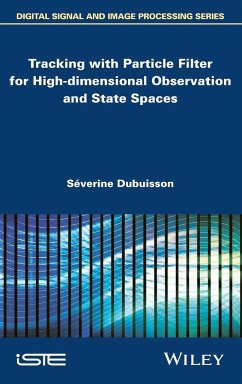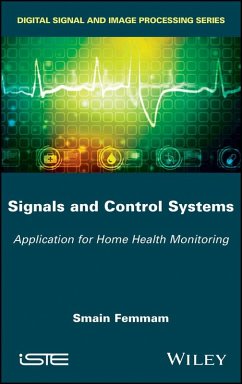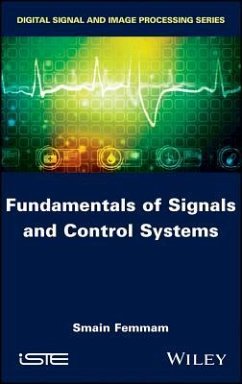Nicht lieferbar
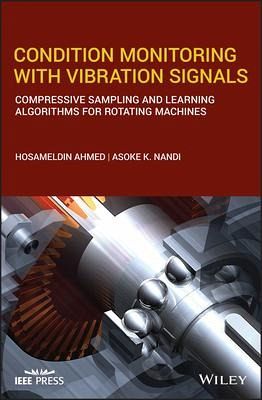
Condition Monitoring with Vibration Signals
Compressive Sampling and Learning Algorithms for Rotating Machines
Provides an extensive, up-to-date treatment of techniques used for machine condition monitoring Clear and concise throughout, this accessible book is the first to be wholly devoted to the field of condition monitoring for rotating machines using vibration signals. It covers various feature extraction, feature selection, and classification methods as well as their applications to machine vibration datasets. It also presents new methods, including machine learning and compressive sampling, which help to improve safety, reliability, and performance. Condition Monitoring with Vibration Signals: Co...
Provides an extensive, up-to-date treatment of techniques used for machine condition monitoring Clear and concise throughout, this accessible book is the first to be wholly devoted to the field of condition monitoring for rotating machines using vibration signals. It covers various feature extraction, feature selection, and classification methods as well as their applications to machine vibration datasets. It also presents new methods, including machine learning and compressive sampling, which help to improve safety, reliability, and performance. Condition Monitoring with Vibration Signals: Compressive Sampling and Learning Algorithms for Rotating Machines starts by introducing readers to Vibration Analysis Techniques and Machine Condition Monitoring (MCM). It then offers readers sections covering: Rotating Machine Condition Monitoring using Learning Algorithms; Classification Algorithms; and New Fault Diagnosis Frameworks designed for MCM. Readers will learn signal processing in the time-frequency domain, methods for linear subspace learning, and the basic principles of the learning method Artificial Neural Network (ANN). They will also discover recent trends of deep learning in the field of machine condition monitoring, new feature learning frameworks based on compressive sampling, subspace learning techniques for machine condition monitoring, and much more. * Covers the fundamental as well as the state-of-the-art approaches to machine condition monitoring--guiding readers from the basics of rotating machines to the generation of knowledge using vibration signals * Provides new methods, including machine learning and compressive sampling, which offer significant improvements in accuracy with reduced computational costs * Features learning algorithms that can be used for fault diagnosis and prognosis * Includes previously and recently developed dimensionality reduction techniques and classification algorithms Condition Monitoring with Vibration Signals: Compressive Sampling and Learning Algorithms for Rotating Machines is an excellent book for research students, postgraduate students, industrial practitioners, and researchers.





